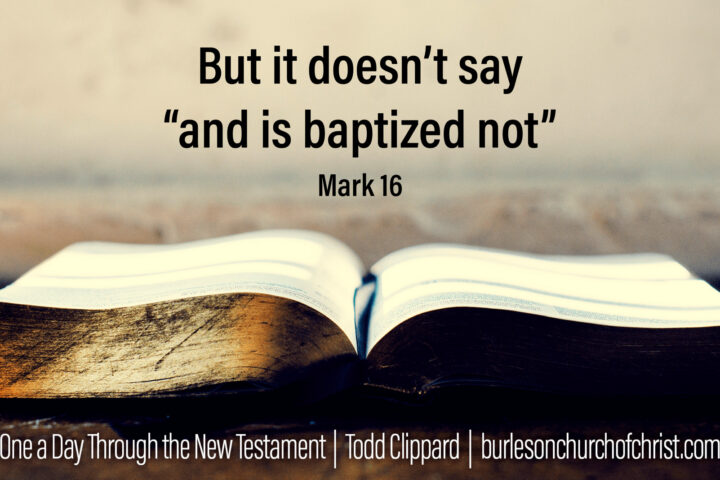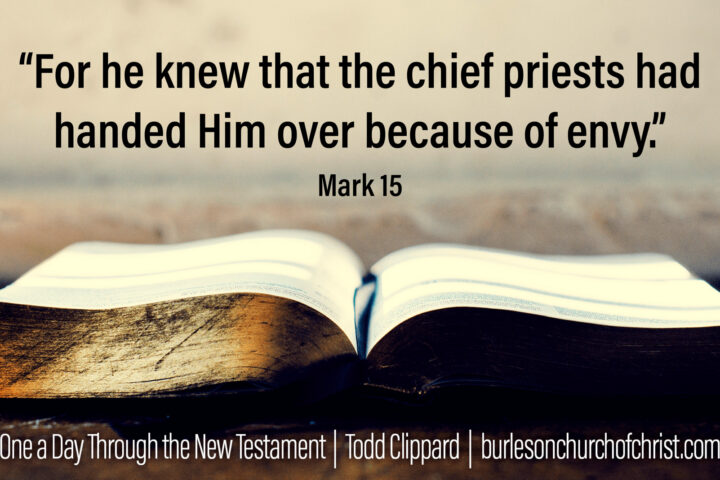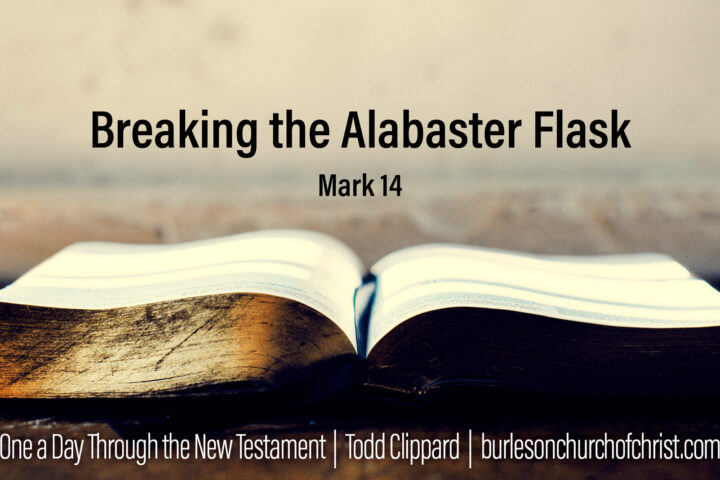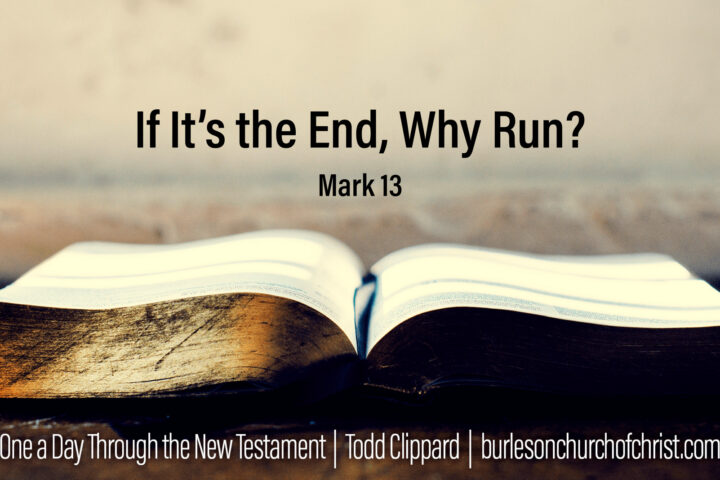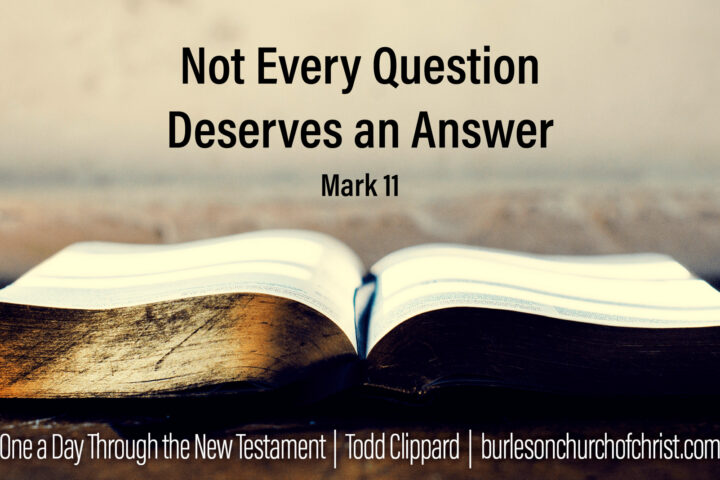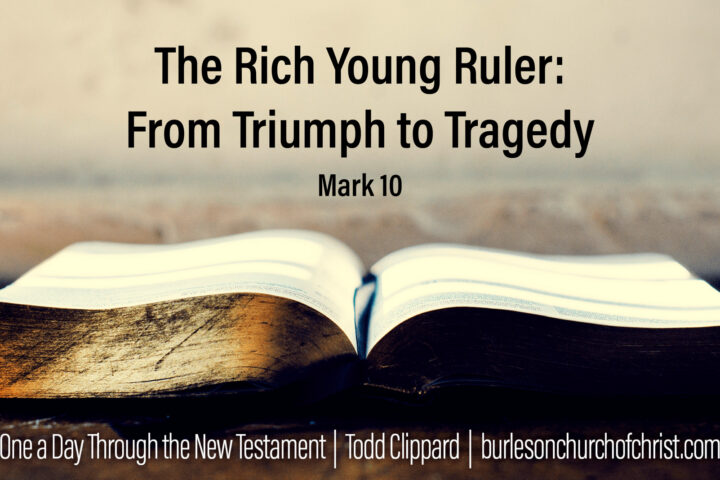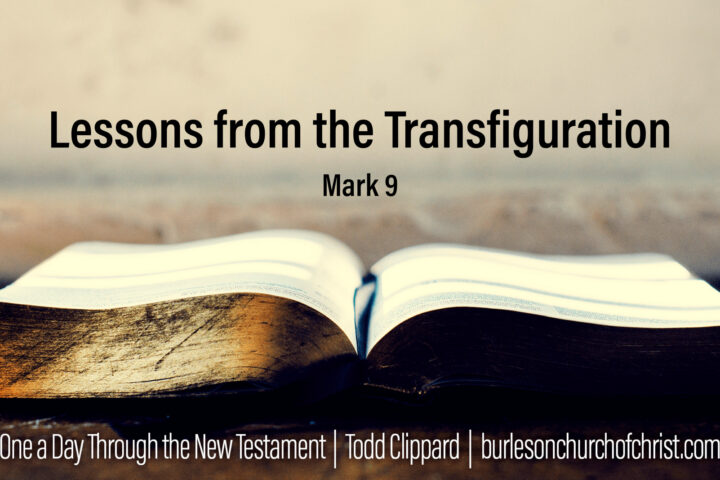Luke 2: I Can Die Now
Today’s title is a phrase often used when someone experiences some great event which they longed to see or participate. It is used after one meets some great athlete, author, or respected person. It is used after one makes a great journey, perhaps to see the land of his birth, Normandy, or climbs Mount Everest. Most people have no idea the phrase is a paraphrase of a statement made in today’s text. In Luke 2:25-35 we are introduced to Simeon.…
Luke 1: The babe leaped in her womb.
This is the statement made concerning yet to be born John when his mother Elizabeth heard the greeting of her cousin Mary, the mother of Jesus. For believers, Luke 1:39-45 is very important given America’s current social and moral climate. As of this writing (March 4, 2019), there are 6 US Senators who have declared themselves as candidates for the Presidency in 2020. Recently ALL SIX declared their willingness not only to allow unborn babies to be murdered all the…
Mark 16: But it doesn’t say “and is baptized not”
“Go into all the world and preach the gospel to every creature. He who believes and is baptized shall be saved; he who does not believe will be condemned.” This is perhaps the most straightforward statement in all of Scripture affirming the absolute necessity of baptism to be saved. One needs help, and a lot of it, to not see the clear teaching of the Lord in this text. Yet, those who reject this word of the Lord while claiming…
Mark 15: “For he knew that the chief priests had handed Him over because of envy”
This statement is made of Pilate after spending time with Jesus and his accusers. One important point of note here, namely the power of envy. We often tend to think of sins categorically by their perceived level of vileness or danger. Murder is always atop our mental lists, and sexual sins like adultery and homosexuality usually find their way near the top. Envy probably doesn’t come immediately to mind for most of us, but it should. Envy killed our Lord.…
Mark 14: Breaking the Alabaster Flask
The family of Lazarus, Mary, and Martha is one that enjoys prominence in the pages of Scripture. Some of life’s greatest lessons have been learned and great sermons have been preached from the accounts involving them (cf Luke 10:38-42; John 11:17-44). Today’s reading contains one of them. “She has done this for my burial.” So said our Lord of Mary (cf John 12:1-3) after she broke an alabaster flask and poured out its costly contents on His head. Hers was…
Mark 13: If It’s the End, Why Run?
One of the most common misunderstandings about this chapter and its companion chapters (Matt 24; Luke 21) is that the text is speaking to the events immediately preceding the end of the world or the error commonly known as dispensational premillennialism. Many wild and fanciful theories have been concocted using these synoptic texts and the book of Daniel, none of which are in harmony with Bible teaching. Consider some of the clear statements within the text, starting with verse 14:…
Mark 12: The Common People Heard Him Gladly
One of my favorite things to hear following a sermon is, “I believe anyone could understand what you preached today.” I usually respond with, “I’m a simple country preacher. I’m not smart enough to get too deep.” The goal of every preacher should be this: Impart the word of God so that every honest heart can understand and respond appropriately. This is why I love the statement in Mark 12:37, “And the common people heard Him gladly.” For years I…
Mark 11: Not Every Question Deserves an Answer
One of the things we were taught in the Fishers of Men program is the importance of answering questions with questions. There are several reasons for this. First, so doing can disarm those who make inquiries that are prone to generate more heat than light. Another is to gain clarification and/or determine the meaning of the question. Finally, answering questions with questions can determine the sincerity or lack thereof of the querist. This last purpose was the point of Jesus’…
Mark 10: The Rich Young Ruler: From Triumph to Tragedy
The New Testament is filled with accounts of people who were on the very precipice of obedience, but for some reason we don’t see a record of follow through. I think of the scribe in Mark 12, to whom Jesus said, “You are not far from the kingdom of God” (v 34). I think of Felix, who trembled at the word of God (Acts 24:25), and King Agrippa, who made one of the saddest statements in all of Scripture when…
Mark 9: Lessons from the Transfiguration
The Mount of Transfiguration is an interesting and informative text. Among the lessons to be learned include: First, the continuation of identity after death. Moses and Elijah had been dead for centuries when they appeared with Jesus, yet both retained their earthly identity. Consider also that Peter identified the two, even though he had never seen either of them! Our identities follow us into eternity, for every person shall be judged according to his own works (Rev 20:12; 2 Cor…


